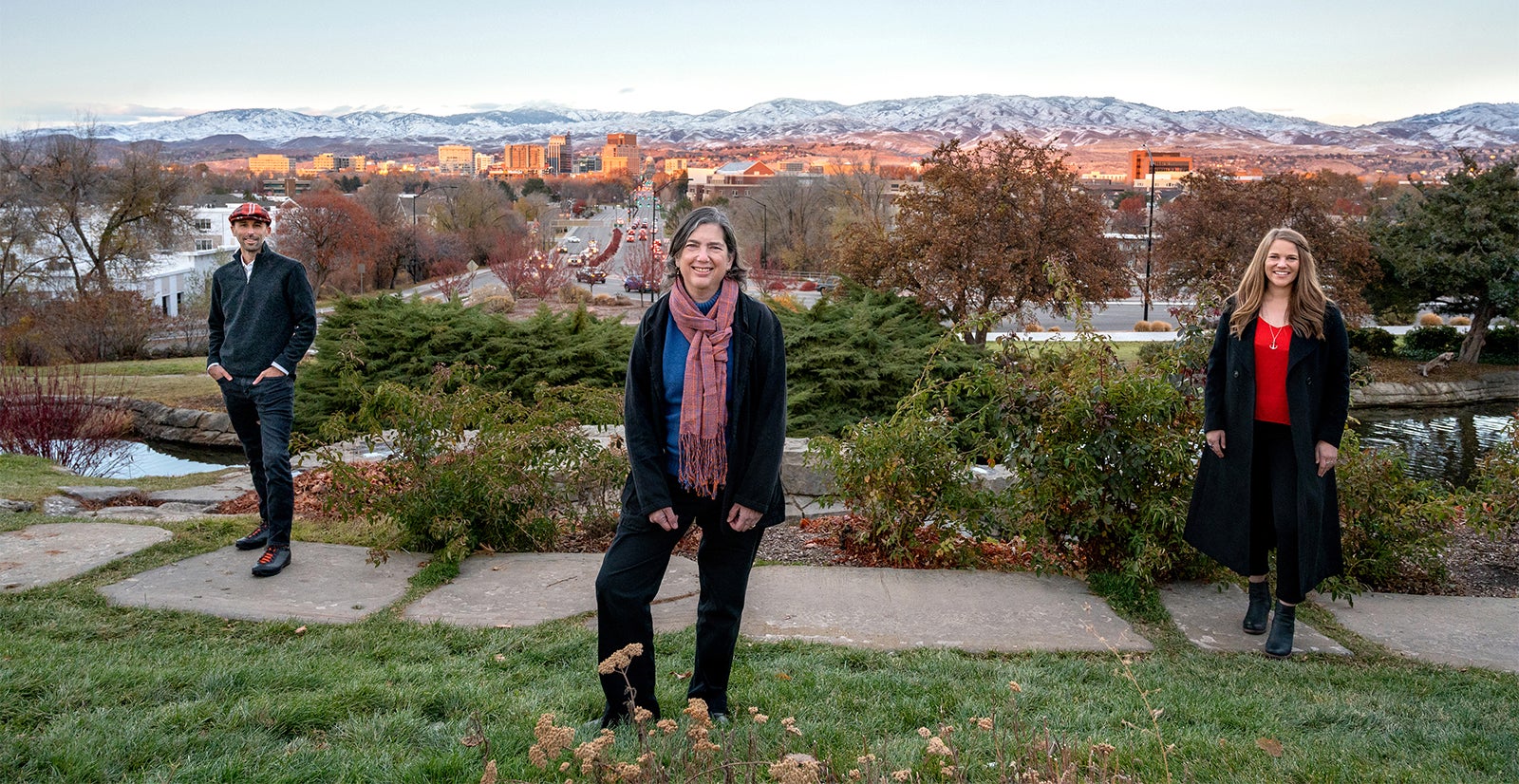
Transformation), Photo by Priscilla Grover
In September of 2020 more than 100 participants connected in a virtual program to hear the trailblazing research of 16 faculty of all ranks in Boise State’s ASSERT 2020 cohort. ASSERT, which stands for Aligning Stakeholders and Structures to Enable Research Transformation, is a cohort faculty development program. This program invites faculty from all ranks and across all disciplines to learn together and grow as scholars, leaders, educators and professionals in a community-centric environment.
In this program-culminating event, faculty from across Boise State shared their research in three-minute pitches to a diverse group of campus and community leaders and stakeholders. A full list of the 2020 faculty cohort can be viewed below.
“This is what it means to be an innovative research university,” said Boise State president Dr. Marlene Tromp. “It really takes a community working together to create the kind of innovative environment where ideas are born, and a supportive community to help translate those ideas into action. It’s wonderful to live and work in such a thriving community.”
“The ASSERT program transformed the way I view scholarship. It helped me to identify my primary values as a researcher and teacher and empowered me to create a path of genuine engagement. The impacts of this program will stay with me throughout my career,” said Megan Cattau, an assistant professor in the College of Innovation and Design.
Presented research topics defied traditional disciplinary silos and ran the gamut from investigating the contagious nature of joy, to reimagining adolescent suicide prevention, to leveraging theoretical physics to solve global health problems.
“Being a part of the ASSERT community has inspired me to pursue transformative research on environment-related issues and engage with stakeholders in the state of Idaho and beyond,” said economics assistant professor Jayash Paudel. “It has helped me build strong relationships with ASSERT fellows across different disciplines and strengthened my desire to conduct multidisciplinary research. I have also learned about the power of story-telling in disseminating research findings to a wider audience.”
Go here to view a recording of the event.
ASSERT is led by Institute for Inclusive and Transformational Scholarship (IFITS) executive director Donna Llewellyn, IFITS senior faculty member and materials science and engineering professor and school director Will Hughes and project manager Megan Gambs, with support from the Division of Research and Economic Development, the Office of the Provost, the College of Innovation and Design, and IFITS at Boise State University.
Over the past four years, 55 participants have received professional development through ASSERT.
Llewellyn and Hughes think of ASSERT as the “kitchen in the ‘house’ called IFITS.” Their goal was to answer the question of how to create a structure that would guide faculty along their journey of being impactful scholars. “We do this by naming and then addressing the barriers that prevent academics from doing their best work and being their best selves,” said Hughes and Llewellyn.
“It is both a privilege and joy to support ASSERT faculty fellows as they grow and move their transformational research ideas forward,” said Gambs. “The power of this program lies with our fellows; through their vulnerability and servant leadership orientation, they build community that transcends disciplinary silos and drive one another forward. It is truly inspiring.”
The 2020 ASSERT faculty cohort includes:
- Megan Cattau, Human-Environment Systems
- Richard Elliott, Micron School of Materials Science and Engineering
- Clare Fitzpatrick, Mechanical and Biomedical Engineering
- Phil Kelly, Curriculum, Instruction, and Foundational Studies
- Mahmood Mamivand, Mechanical and Biomedical Engineering
- Peter Müllner, Micron School of Materials Science and Engineering
- Jayash Paudel, Economics
- Mojtaba Sadegh, Civil Engineering
- Noah Salzman, Electrical Engineering
- Ellen Schafer, Community and Environmental Health
- Megan L. Smith, Community and Environmental Health
- Shelly Volsche, Anthropology
- Dorsey Wanless, Geosciences
- Lisa Warner, Chemistry and Biochemistry
- Jessica Wells, Criminal Justice
- Matt Williamson, Human-Environment Systems